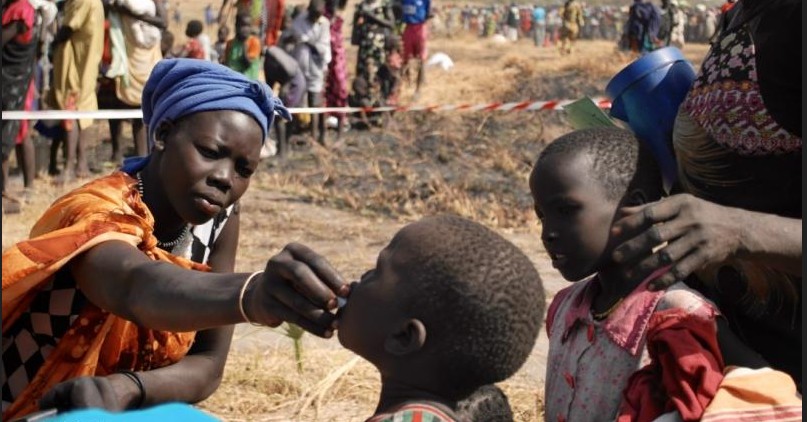Sudan records nearly 2,000 cholera deaths as conflict exacerbates outbreak: Africa CDC

All 18 states in Sudan are affected by the ongoing cholera outbreak, with current hotspot areas including North Kordofan, White Nile, and Darfur, and the country's capital, Khartoum.
The Africa Centres for Disease Control and Prevention (Africa CDC) has warned that conflict-driven challenges have further exacerbated the ongoing cholera outbreak in Sudan, as the country recorded nearly 2,000 cholera-related deaths since the start of 2025.
Since the start of this year, Sudan has recorded 71,373 cholera cases and 1,996 deaths, marking the highest number of fatalities from cholera in Africa during the period, Yap Boum II, deputy incident manager for mpox at the Africa CDC, said during an online media briefing on Thursday evening.
More To Read
- Sudan: Kordofan cannot become ‘another El Fasher,’ UN rights chief warns
- Sudan’s crisis deepens with communities trapped in ‘siege conditions’
- From protesting tyranny to saving lives: How Sudan’s networks are responding to war
- Somalia welcomes first group of Sudanese students under new scholarship programme
- ‘I have to talk about it' - rape and terror sparks mass migration in Sudan
- Sudan army makes major gains in South Kordofan, retakes key villages from SPLM-N
Boum expressed concern over conflict-induced challenges that are both driving the spread of cholera, while also hindering response efforts.
All 18 states in Sudan are affected by the ongoing cholera outbreak, with current hotspot areas including North Kordofan, White Nile, and Darfur, and the country's capital, Khartoum.
The Africa CDC has identified conflict-induced water-system failures, widespread displacement, and access constraints as major drivers of the rapid surge in cholera cases across Sudan this year.
Boum expressed worry over several challenges hindering cholera response efforts in Sudan, including the existing "very large caseload," surveillance gaps mainly in Darfur, and constrained access to care.
He said multiple rounds of oral cholera vaccine are being conducted in Khartoum and other high-burden states to curb the spread.
Meanwhile, the Africa CDC official raised alarms over the rapid transmission of cholera in Angola and Burundi. After a period of decline, Angola has seen a sharp resurgence over the past five weeks, signalling a potential new wave.
Data from the African Union's specialised healthcare agency showed that 23 African countries have reported 300,117 cholera cases and 6,927 deaths since the start of this year.
"Cholera is really one of the worst outbreaks in the last few years on the continent," Boum said. "When we look at the number of cases and deaths, especially in the Democratic Republic of the Congo, Sudan, now Burundi, and Angola, which is experiencing a second wave, it is of concern."
The number of affected countries and reported cases in 2025 has already surpassed last year's figures. The disease also marked a higher case fatality rate as compared to last year's, which was about 1.9 per cent, according to the Africa CDC.
Boum attributed part of the surge to climate change, as flooding and other climate shocks increase exposure to the disease.
He emphasised the urgent need to exert unified action to tackle the spread of cholera in Africa. "We believe that together we will be able to see the decrease of cholera, moving toward its elimination by 2030."
Cholera, an acute diarrhoeal infection caused by consuming contaminated food or water, results in acute watery diarrhoea and severe dehydration. The disease can be fatal within hours if untreated. Inadequate clean and safe water is said to be the major driver of recurring cholera outbreaks in Africa.
Top Stories Today















































